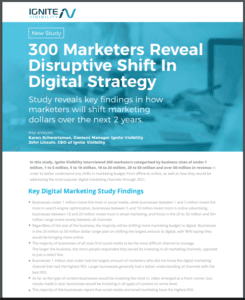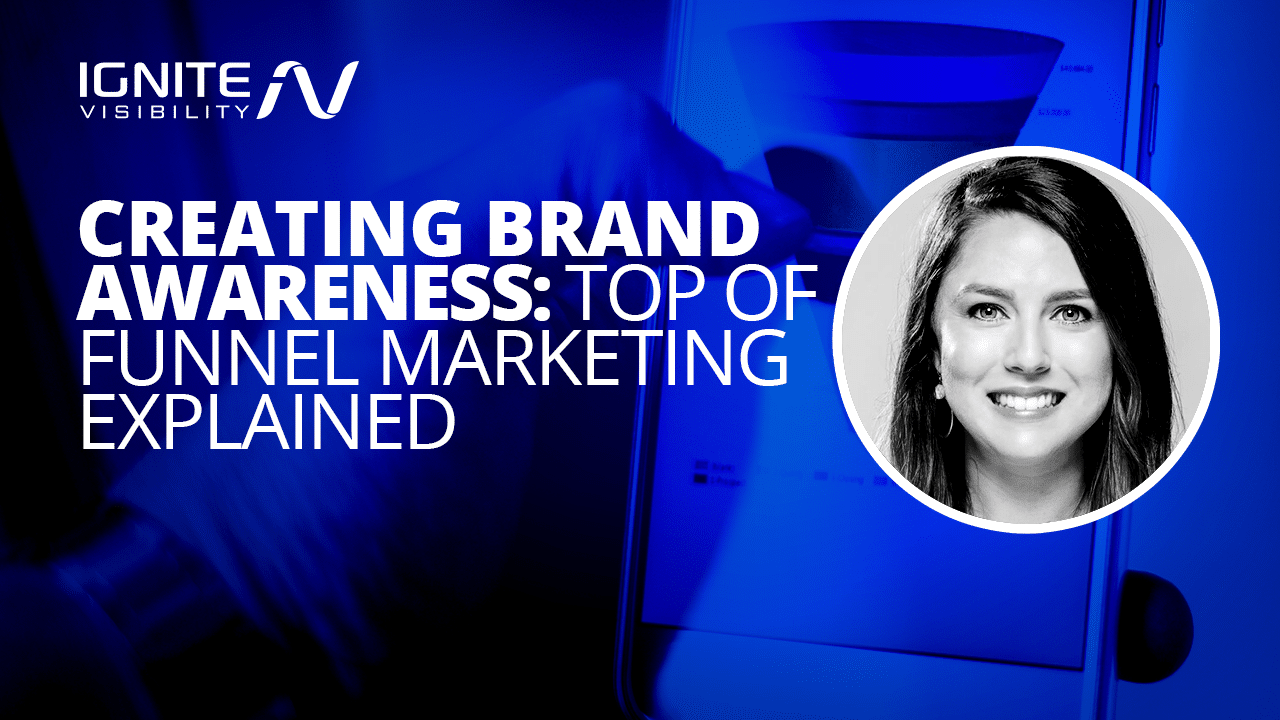
Marketers throw the term “brand awareness” around a lot. But, unfortunately, it’s used in so many contexts it might be hard for you to understand what it means exactly.
And, to some extent, it’s intuitive—it’s just creating awareness of your brand, right?
Yes, to some extent, but also no. Brand awareness marketing and the larger top-of-funnel strategy are complex subjects with many nuances.
So in this guide, we’ll break down the whole process. By the end, you’ll be able to answer these questions:
- What is brand awareness?
- How does it fit into your top-of-funnel strategy?
- What are some tactics you can use to increase brand awareness?
Let’s get started.
What is Brand Awareness in Marketing?
Brand awareness is how recognizable and familiar a brand is to its target audience. It measures how many people know a brand, recognize it, and are aware of it.
Why is Brand Awareness Important?
Brand awareness is essential because it’s the first step in the sales cycle. If people don’t know your brand, they’ll never become customers.
Furthermore, people with higher brand awareness are more likely to purchase, have higher levels of customer loyalty, and have more positive brand perceptions.
It’s also important because it’s the foundation for getting a premium price. Customers with higher levels of brand awareness are more likely to pay more for a product or service.
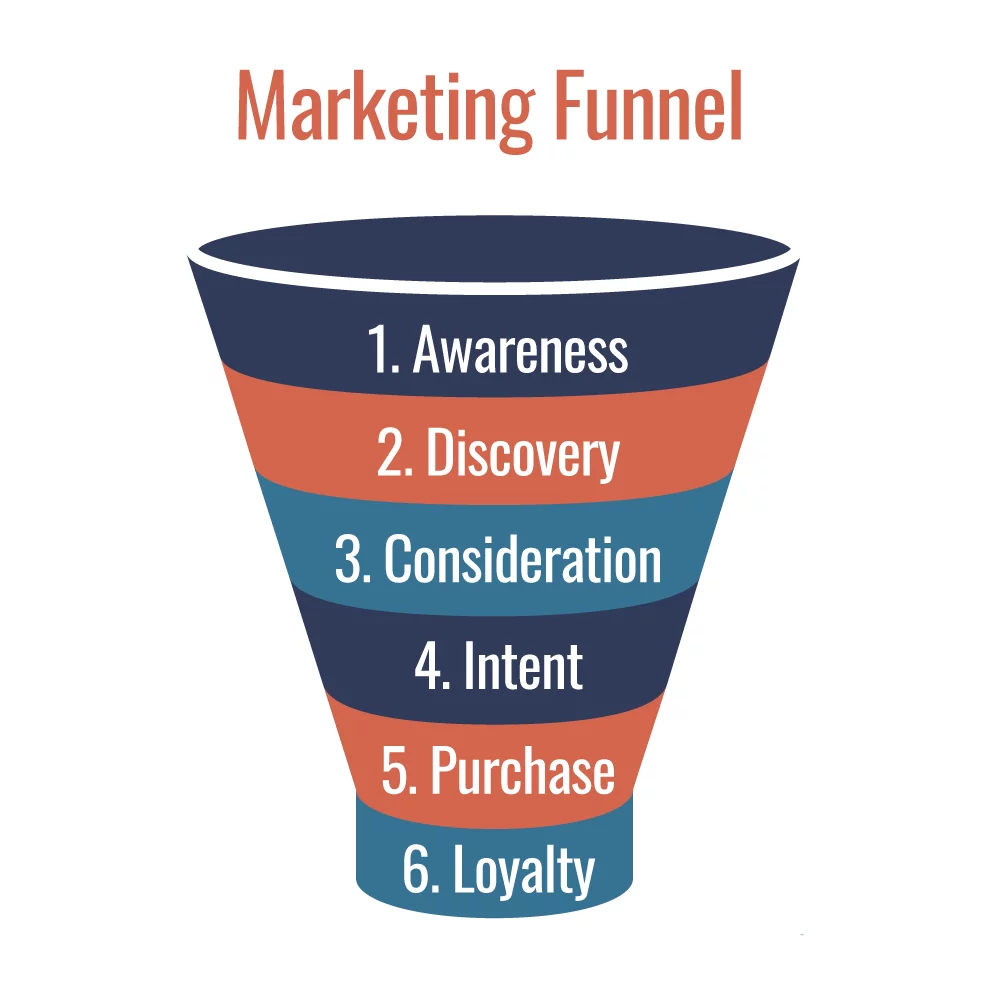
Customer Marketing Funnel
What is TOFU in Marketing?
TOFU stands for “top of funnel.” It’s the first stage of the marketing funnel and focuses on creating awareness and interest in your brand. It’s all about getting your target audience to know and recognize you.
Top of funnel focuses on tactics that generate exposure and impressions. It’s also concerned with building trust, establishing credibility, and creating an emotional connection with your audience.
How Brand Awareness Relates to TOFU
Brand awareness is also closely related to top of funnel (TOFU) marketing. TOFU strategy encompasses potential customers’ first contact with your brand and everything that happens before they become customers.
Therefore, an effective TOFU strategy should include brand awareness tactics. Brand awareness helps your target audience identify your brand. It makes them more likely to remember and trust you over competitors.
The goal of increasing brand awareness is to create a large group of people that consider your brand when it comes time to shop. This way, even if they don’t buy right away, they may later.
How to Build Brand Awareness Organically
Brand Awareness doesn’t happen overnight. You’ll need to work hard over years to build a natural presence in the minds of your audience like Apple and Starbucks have.
Now, of course, you’ll probably never be anywhere near the size of those brands (but go for it!), but their strategies will be just as effective for you.
How to Develop a Brand Awareness Marketing Strategy
Developing a brand awareness strategy is a multi-step process.
First, identify your target audience. Then, create a message and visuals that will resonate with them. Finally, focus on the channels that are most likely to reach them.
Here’s what the process looks like in detail:
1. Identify Your Target Audience
Start by researching who your target audience is and what their needs and pain points are. Focus on understanding their demographics, interests, online behaviors, and more to create a detailed buyer persona.
How to Create a Buyer Persona
Creating a buyer persona is simple in concept but requires some research:
- Identify the basic demographic information such as age range, gender, geographical location, and education level.
- Explore their values, opinions, and behaviors.
- Dig deeper to understand their needs and goals.
- Use existing customer data to narrow down the details.
- Create a detailed representation of a typical customer.
- Test the accuracy of the buyer persona by asking customers for feedback.
Finally, refine the persona if needed and use it to guide your brand development.
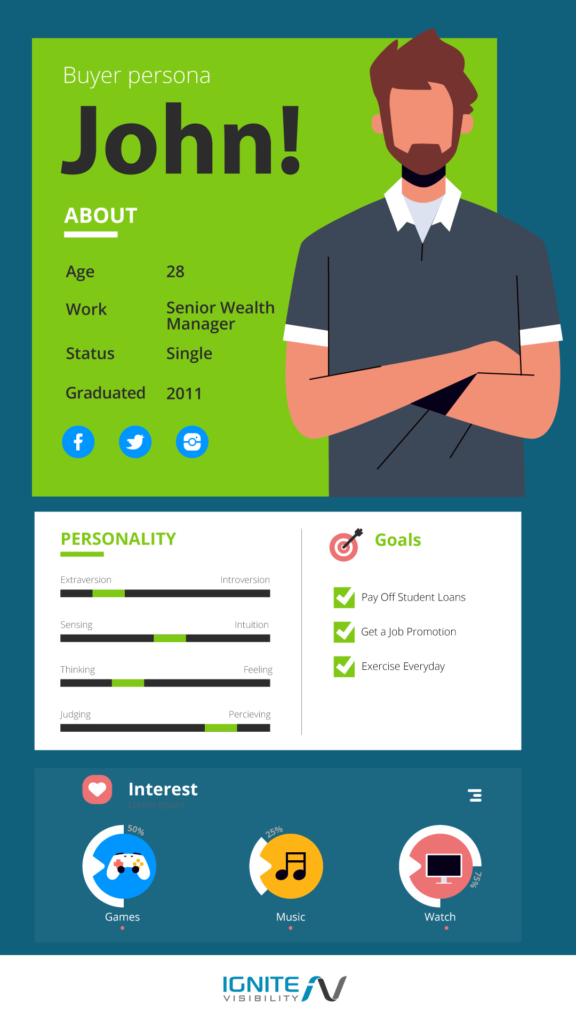
Example of a Buyer Persona
2. Develop Your Brand Messaging
Create a message that resonates with your target audience.
Focus on conveying the values of your brand and the benefits of your product/service. Make sure your message is genuine and clear.
How to Develop Your Brand Messaging
To develop effective brand messaging, you will need to:
- Research your target audience to understand what is important to them.
- Define your unique selling points and use them to differentiate your brand.
- Choose a tone of voice and ensure it’s consistent across all communications.
- Make sure your message has a clear call to action.
3. Create Visual Materials
Develop visuals that best fit your brand identity and message.
Think about what type of visuals your target audience responds to: photos, videos, infographics, etc. Your visuals also need to fit the channels you plan to use.
How Big Brands Develop a Visual Identity
Major, successful brands have a recognizable visual identity that’s consistent across all materials. Here’s the rough strategy they follow:
- Choose a color palette and fonts that accurately represent your brand.
- Develop a logo and use it everywhere.
- Focus on creating visuals that evoke emotions.
- Ensure your visuals match your tone of voice.
- Consistently use the same visuals on all marketing materials.
4. Pick the Right Channels
Choose channels where you can reach your target audience. Think blogs, social media, digital ads, email, etc. Choose wisely, as not all channels are suitable for all brands.
When choosing channels for your brand awareness strategy, you should consider the following:
- The demographics of each channel.
- The type of content that works in each channel.
- The cost of each channel.
- How quickly you can reach your target audience.
How Successful Brands Use Different Channels
Some examples of channels successful brands leverage include:
- Social media: Use to build relationships, create an engaged community, and raise brand awareness.
- SEO: Optimize content for organic search so it can rank in search engine results.
- Paid Ads: Use to reach more people quickly and easily.
- Influencer Marketing: Leverage influencers to amplify your message.
- Content Marketing: Create valuable content that resonates with your target audience.
5. Analyze Performance
Track your performance using marketing analytics and tracking tools.
Monitor your brand awareness marketing levels, as well as engagement and leads. This will help you understand which tactics and channels are most effective so you can refine your top of funnel strategy further.
Most Effective Ways to Brand Awareness Success
The most effective ways to analyze the performance of your brand awareness strategy include:
- Analyzing website and social media metrics such as page views, likes, shares, and comments.
- Tracking engagement numbers, such as how long people spend on your website or how many people opened your emails.
- Measuring leads, conversions, and purchases on your website relative to attribution.
- Monitoring ROI (return on investment) to understand which tactics generate the most returns.
- Using social listening tools to track your brand’s mentions in the media, on social media, and on the web.
6. Refine Your Strategy
As you gather performance data, refine and update your brand awareness strategy.
If something isn’t working, try something new. If it works, keep doing it, and if it doesn’t, move on to something else.
The goal is to be agile and constantly adjust based on the results you’re seeing. This way, you’ll be able to create an ever-evolving campaign that delivers the best results for your brand.
Proven Types of TOFU Content
The most effective types of top of funnel content are:
- Blog Posts: Blog content converts search traffic into qualified leads. You can tailor each post to the searcher’s exact intent, allowing you to present solutions to their problems directly.

Blog Posts
- Email Newsletters: A regular email newsletter keeps your audience engaged and informed.
Example of Email Newsletter
- Social Posts: You can use social media to announce promotions, new products, and company updates.
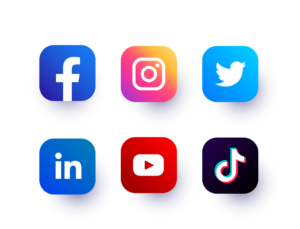
Social Media Marketing
- How-to Videos: Videos are a great way to explain complex topics and demonstrate your product or service in action.
- Tip Sheets: Tip sheets are a great way to provide your audience with valuable information while also driving traffic and leads to your website.
- Resource Round-Ups: A resource round-up is a collection of relevant content from other sources that you can link to provide extra value and help build relationships.
- Introductory Ebooks: Introductory ebooks give your audience an overview of your brand, your products or services, and your industry. It also provides an opportunity to start building relationships with prospects.
- Whitepapers: Whitepapers provide in-depth explanations of complex topics for you to share research, demonstrate your knowledge and authority, and position your brand as a thought leader.
- Infographics: Infographics are ideal for visualizing complex topics and facilitating content sharing. Their attention-grabbing visual appeal, especially when using modern infographic layouts, makes them perfect for social media platforms.
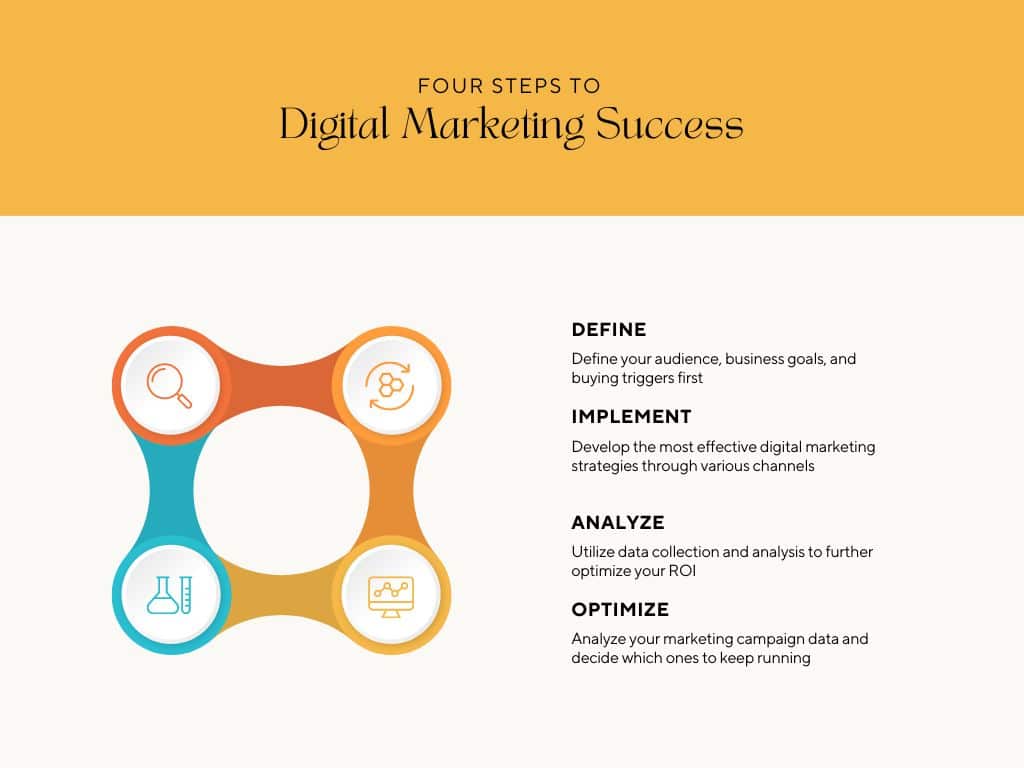
- Checklists: Checklists are an effective way to provide simple, actionable advice while also driving potential customers to your website or other content. Just ensure that you provide enough value for people to visit your website.
- Quizzes: Quizzes are an interactive way to engage your audience, build relationships, and collect data. You can use them to generate leads by gating the results so that people have to provide their contact information to get access.
- Educational Podcasts: Podcasts empower you to position yourself as an authority in your industry. You can also use them to build relationships with potential customers, as well as to share stories, experiences, and advice.

Ignite Visibility University Podcast
- Guides & Tutorials: Guides and tutorials are excellent for educating your target audience about your products and services. They also encourage people to visit your website and convert to leads.
- Industry Surveys: Surveys are a great way to collect feedback from your target audience. You can also use them to collect demographic data, which can help inform you about who your customers are and what they need from you.
TOFU Awareness Cross-Channel Strategy Example
Take the following example—a Company is launching a new product and wants to drive awareness of the product.
Their top-of-the-funnel awareness strategy might look like this:
-
- Goal: Sell SEO services
- Target Persona: Business owners
- Intent: Looking for ways to increase business online
- Content: “What is SEO?” Webinar
Execution
-
-
- Create LP for Webinar: This should include an email capture for webinar sign-up and address the persona’s pain points and how in this webinar we will offer solutions to those problems.
- Email: Having captured their email, you can nurture them toward conversion with welcome automation, consistent calendar campaigns, etc. You can also promote the webinar to existing email subscribers who are still in the awareness stage to help nurture them.
- Social Posts: Promote who the speakers are, what pain points the webinar addresses, and anything else unique about it.
- Display Ads: Reach a wide audience through visuals and leverage audiences to reach relevant consumers
- Popups: Launch pop-ups promoting the webinar on your website, especially on the company blog.
-
Wrapping Up
Brand awareness is an essential element in any marketing strategy. The tips and examples above should help you create a successful brand awareness campaign.
Remember to research your target audience, create an engaging message, choose the right channels, and track the performance of your campaign.
With the right plan in place, you’ll be well on your way to building brand awareness and driving growth for your business.

